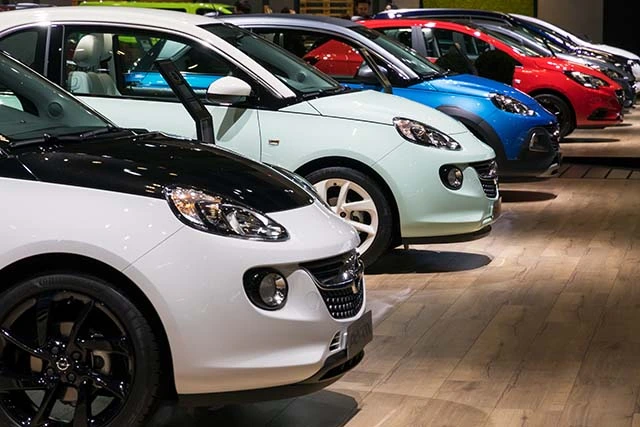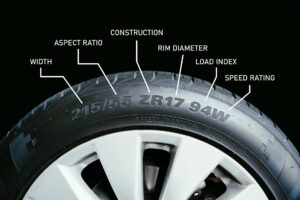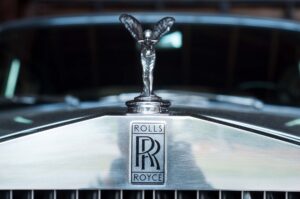Shopping for a used car has become standard practice. It’s always better to have a new, not previously owned vehicle, but with the rise of gas prices and general inflation, few can afford such a luxury. If you’re also searching, here are tips for buying a used car and recognizing scams.
When buying a used car, check its mechanics and paperwork thoroughly before making a final decision. You can be in a hurry, but your future four-wheeler should last long. The main tip would be to not rush into deals that superficially seem good; they can be dodgy and cause more problems than just bad spark plugs.
Follow These Tips for Buying a Used Car and Drive Out Into the Sunset
Tips for buying used cars are abundant. This practice has numerous pros and cons, and many of your family members and friends will intervene and try to convince you to do one thing or another.
Let me pitch in – buying a second-hand vehicle is no walk in the park, and that’s the biggest truth. Still, despite the somewhat overwhelming shopping experience, I would much rather invest in a great used than an average new car.
As a car owner, you should know how to change a flat tire and potentially replace the valve stem, but as a shopper, it’s important to know how not to fall for a bad offer. It can be easy if you’re a pushover. If you instinctively know a deal is bad, pushover or not, you should back out.
Essentially, these are the tips to follow when going on a used car hunt:
- Determine a realistic budget,
- Check your loan options and credit score,
- Look for cars that suit your essential needs,
- Find a reliable car sales platform,
- Ask for a full vehicle history report,
- Take the car for a test drive,
- Learn how sellers scam people.
Before Shopping – Determine a Realistic Budget
Your new four-wheeler shouldn’t have to cost an arm and a leg. Used cars can be overpriced, which has several explanations – they were rarely used, they are relatively popular, or the seller’s trying to sell them for higher and take 40% to 50% from the sale.
So, don’t leave the house without having a ballpark price in your mind. If you’re not ready to cash out more than $8,000 for a second-hand vehicle, don’t. Determine the highest and lowest price you’ll do for a purchase.
Why have the lowest price in mind, too? With lowball opportunities, dealers and resellers peddle barely usable vehicles, calling them a ‘steal.’ It was probably stolen somewhere, so consider having the lowest you’ll go, too.
If You Want to Get a Loan, Check Your Options
People who want to finance their car purchase with a loan do it to save money on more expensive models or protect their savings. If you’re planning this, the lender will consider the following information:
- Your credit score – for most lenders, the minimum is 600, but some, like Carvana, go down to 450,
- The estimated APR score – APR is an annual percentage rate generated by a loaned sum. The average car loan APR is between 5% (good credit) and 18% (bad credit,) but some lenders go higher,
- The loan amount – this is likely the most important factor since it’s a sum of other products. Your credit score and APR score determine the loan amount.
Narrow Your Choices Down to a Necessary Selection
Paying to clean a steering wheel or thoroughly cleaning seat belts won’t make an old car drive better, so there are no temporary solutions to permanent problems. Liking the car won’t mean it’s right for you.
For example, a brand-new Jeep Renegade is $45,000, but one or two bumps in the road, and the repairs cost around $15,000. Sure, it’s a sleek car, but it doesn’t justify the price. On the other hand, most used Honda Civics in circulation can be found for three times cheaper than that, if not less. Honda Civic is one of the best cars on the market, used or not, and has essential things for any driver.
A Quick Guide on What to Look For in Used Cars
During tough times, investing in a car that guzzles gasoline would be a huge mistake. It would help to consider the vehicle’s fuel economy, the cost, and the frequency of stopping at gas stations. So, for one, you need a reliable car.
If you’re single and want to purchase a vehicle for yourself, you won’t need to invest in an expensive minivan or an off-road monster. If you intend to drive alone or eventually with a friend or two, a compact and comfy sedan or a coupe will be enough.
A minivan, SUV, or hatchback would be great choices if you travel a lot or have a large family and pets. Put function over style and aesthetic, and you’ll make a good decision any time.

Find a Reliable Car Sales Lot or Platform
There must be car sales lots near you to visit and check out their catalog. Most have a wide range of off-road cars, sedans, sports cars, and countless other vehicle types; it’s up to you to determine what suits your budget and needs.
Many online platforms also offer reliable car-sale services. This option may be even more suitable because no one would be in your ear, pressuring you to buy lower or higher; you can check out whichever four-wheeler you want and calculate the pros and cons of investing in it in the comfort of your home.
Good and Bad Places to Look For Cars
Car dealerships seem like the best places for buying a used car, but that’s not always the case. People in sales know how to rely on their charm and convince people to buy higher than they’d initially pay.
They can also convince you by lowballing, making you believe you got off with a steal when you’ve been given a bad deal.
Here’s a quick chart overview of good and bad places for getting a used car.
| Seller type | Good or Bad? | Why? |
| Brick-and-mortar dealerships | Bad | Salespeople can convince buyers to agree to unrealistic prices |
| Carfax | Bad | They often hide the damage done to the cars in their lots |
| Carmax | Bad | They’re too expensive and often don’t know details about their cars |
| Private sellers | Good | Good negotiation opportunities, better pricing, and car options |
| Online dealerships | Good | You can take the time to browse for cars and figure out your preferences |
| Carvana | Good | They offer a 360-degree inspection view and a seven-day return window |
Get a Vehicle History Report
If the vehicle you’re interested in used to be a rental, avoid it at all costs. Rental cars are rarely adequately cared for in those agencies. Also, many people have driven them before; not all were conscious or even good drivers.
If you check the vehicle’s history and see it’s a car with a salvage title, be wary. Rebuilt vehicles can be excellent, but sometimes, they aren’t. Some can be rebuilt even if they only had cosmetic repairs, leaving you with replacing a bad thermostat, covering the engine replacement, and who knows what other problems.
Ask the seller for a detailed vehicle history report, and don’t back down before you get it.
Check Verified Sources, Like the Kelley Blue Book
Kelley Blue Book is a vehicle valuation company with extensive experience in automotive research. They’re recognized for their work by the industry and consumers and have done reliable work since 1926.
Because of their long-standing reputation, they are among, if not the most trusted vehicle pricing company in the automotive industry. They assess various values, from private party to trade-in, and use them to determine car prices.
If you see a dealership evaluate vehicles according to Kelley Blue Book, their prices are likely fair. You can also use the guide to compare prices in general; this could quickly give insight into who’s trying to trick you and who’s being honest about car sales.

Take the Vehicle You’re Interested in for a Spin
What would a car purchase be if you don’t take it for a spin? Even in brand-new car dealerships, clients can book a driving test to see if the vehicle is up to their standards (or vice versa). Don’t worry; you won’t need to add brake fluid or bother to change a tail light during this period.
Why is a test drive good? Here are some reasons:
- You can check the interior personally,
- You’ll see if all the lights on the dashboard work well, and if some warning lights are on,
- If you choose a varied route, you’ll see how the car performs on hills, the highway, or rough pavement patches,
- You’ll see if there are any blind spots,
- You will inspect the brakes thoroughly,
- You’ll see if it’s possible to reach all the controls, gauges, and handles easily,
- You can listen for strange noises from the engine.
How to Recognize and Discover a Car-Selling Scam
Some car-selling scams have become advanced and can be difficult to discover. However, most are still pretty classic, and while people know they happen, scammers still resort to them.
Besides the most obvious, when the seller tries to persuade you to buy high or low, you could also encounter a tag team of salespeople playing ‘good cop, bad cop’ during their pitch.
The points below are the most classic types of scams.
There’s a Lot to Consider When Buying Used Cars, but the Effort’s Worth It
Buying a used car is a great idea for the most part. Brand-new vehicles are nice but unsustainable at the moment. The world isn’t completely sure what to do next, so we go through the highs and lows of a recession every day.
If you plan to buy a second-hand vehicle, ensure you have all the tricks in your sleeve and tools to spot scams and great deals. This might take some practice and trial and error, but you’ll know what to do when the time is right.








